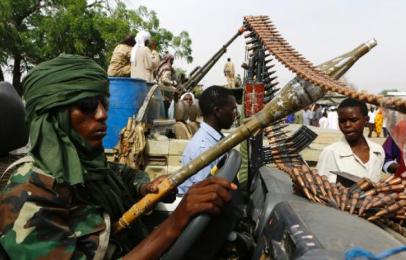Sudan to collect illegal arms in Darfur
April 2, 2016 (EL GENEINA) – Sudanese President Omer al-Bashir Saturday announced the formation of a national body for the collection of illegal arms in Darfur region, saying the region now is pacified and rebel groups are defeated.

While he was in El-Fasher one Friday, the Sudanese president said there is a need to collect illegal weapons from the hand of civilians. He said there will be a first phase were people will be called to voluntarily handover their arms, adding that the second step will be heavy disarmament operations and legal action will be taken against those who didn’t deliver their weapons.
Speaking in the capital of West Darfur State El Geneina, he reiterated that now weapons should only be in the hands of regular forces, and announced the creation of the Darfur Disarmament Higher Committee. which will be tasked with the implementation of this decision.
He further praised the role played by the different political forces in West Darfur to bring peace and stability in their state.
Bashir pointed to the need to end tribal clashes, adding that the government will no longer pay blood money “Diyyat” to the heirs of the victim.
Sudanese government admitted last year that tribal clashes have become the first source of violence that displaced thousands of civilians in Darfur.
Mostly, the clashes were between tribes that backed the government in its counter-insurgency campaign.
The government, actually, didn’t collect arms from the militiamen as it is provided in the DDPD of July 2011, pointing to the armed groups that didn’t sign the deal.
Some of these Janjaweed groups were disbanded and others are reorganized to become a militia force under the name of Rapid Support Forces (RSF). Also, the new militia forces are operating under the command of the National Intelligence and Security Services (NISS) in August 2013.
But in 2014 and 2015, militiamen turned their arms against each other to settle old tribal differences over land and pastures.
The DDPD provided to achieve a ”complete disarmament of militias within 220 days after the signing of the framework agreement.
(ST)
